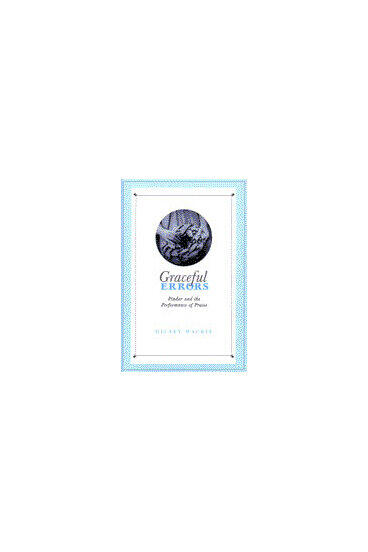Graceful Errors
Pindar and the Performance of Praise
Reveals Pindar's competing motives without oversimplifying his work
Description
Returning home, a victor in the great Greek games of the fifth century B.C. could expect an exquisite choral performance in praise of his achievement?that is, if he had the foresight to hire Pindar. Self-conscious and tactful, yet proudly assertive, Pindar's odes delicately balanced praise against the risk of overstepping; evoked past heroes without overshadowing the present; and prayed for a future harmonizing human aspiration with divine aims.
Reading Pindar's poems with their public performance in mind, Hilary Mackie suggests that the poet was forced to tread a precarious path: weighing the interests of various groups of audience members against one another, balancing praise of the victorious athlete with praise of the deeds of mythic heroes, and catering at the same time to an uncertain future. Mackie's new approach illuminates apparent contradictions in the poet's pronouncements by bringing to the fore the variety of messages conveyed in his wishes and prayers. Her innovative examination of the moment-to-moment dynamic between Pindar and his audience shows that the poet's performance often contained one message for the victor and his family, and quite another for the gods.
Graceful Errors significantly changes our perspective on Pindar's work, providing a lucid appreciation of Pindaric poetry that takes into account the oral context of these poems' performance. It will be of interest not only to classicists but also to scholars and students interested in oral performance, the social function of poetry, and the role and status of poets in traditional cultures, whether ancient or modern.
Hilary Mackie is Associate Professor of Classics at Rice University.
Hilary Mackie is Associate Professor of Classics at Rice University.

